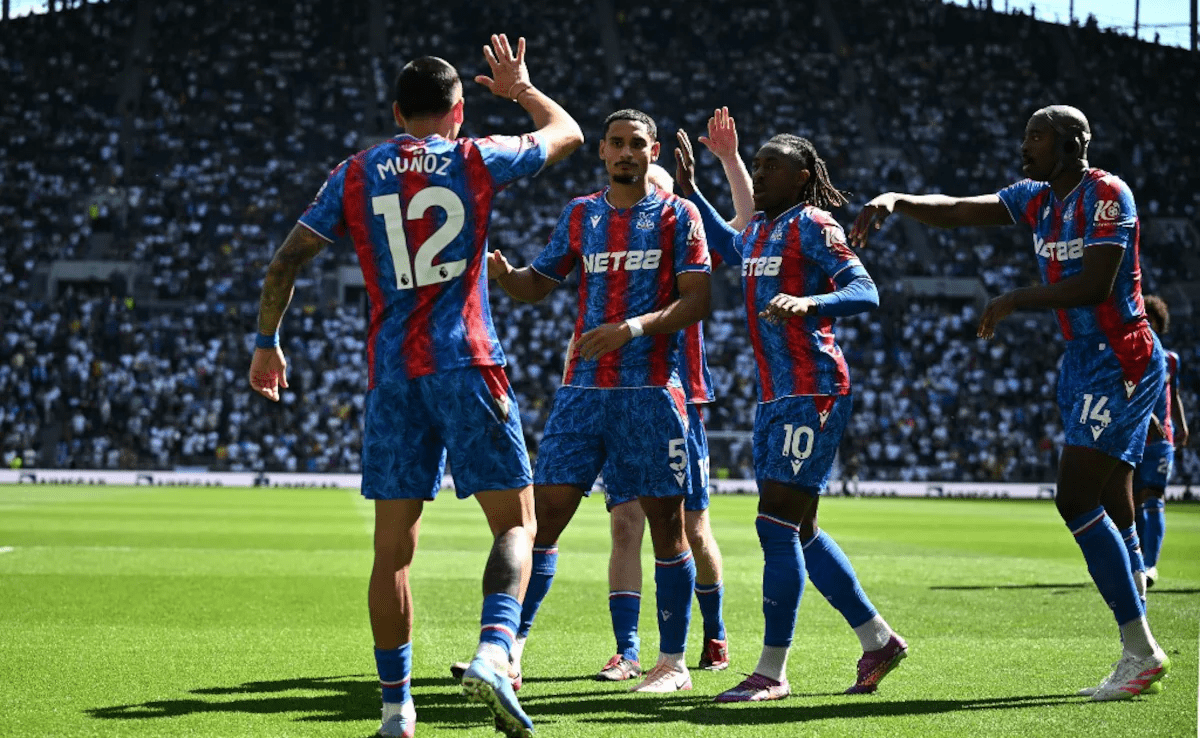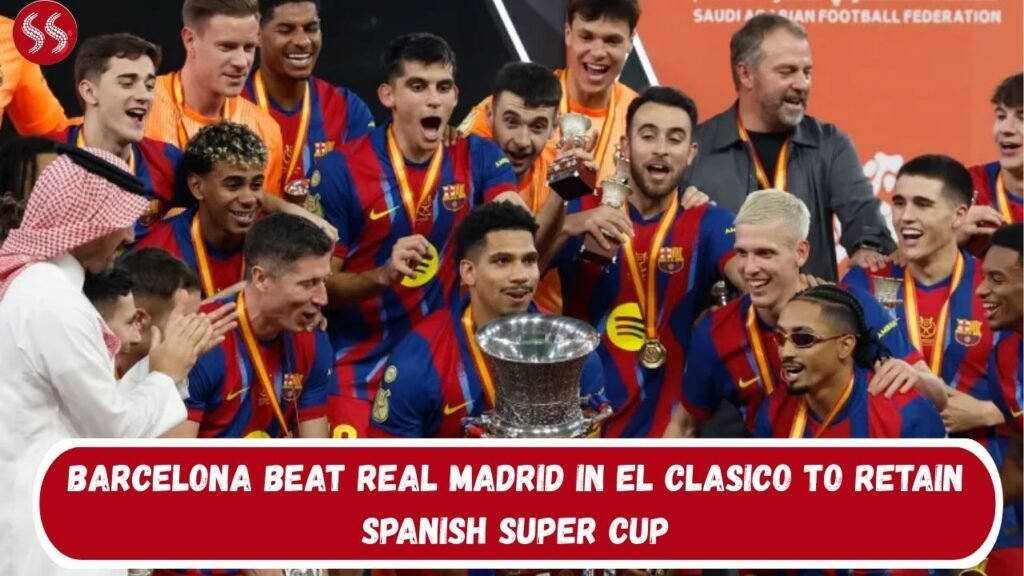Crystal Palace has officially lost its legal battle at the Court of Arbitration for Sport (CAS) to overturn a UEFA ruling that demotes them from the Europa League to the third-tier Europa Conference League. The decision comes after the club was found to have breached UEFA regulations on multi-club ownership due to its ties with American investor John Textor.
The ruling means that despite securing a historic FA Cup victory last season, Palace will now have to begin their European journey in the Conference League qualifying playoffs later this month instead of competing in the more prestigious Europa League. The demotion is a significant setback for the club both financially and competitively, as it denies them access to the lucrative group stage of the second-tier European competition.
The Legal Battle and UEFA’s Multi-Club Ownership Rules
The case against Crystal Palace stemmed from UEFA’s long-standing regulations aimed at preserving the integrity of European competitions. These rules prohibit individuals or companies from having significant control over more than one club competing in the same UEFA tournament in a given season. The policy, drafted over 25 years ago, is designed to prevent conflicts of interest, potential match-fixing concerns, and undue influence over player transfers between clubs under shared ownership.
John Textor, a prominent American businessman, held a 43% stake in Crystal Palace last season while also serving as the owner of French side Olympique Lyonnais (Lyon). This overlap became a direct conflict with UEFA’s ownership regulations, especially since both Palace and Lyon qualified for European competitions for the 2025–26 season.
UEFA had given Palace until March to resolve the ownership issue, but the club failed to meet the deadline. CAS confirmed that its panel of three judges determined Textor had decisive influence over both clubs at the time of UEFA’s assessment, leaving no room for flexibility. The court also noted that UEFA’s regulations were clear and did not allow exemptions for clubs failing to comply by the set date.
Although Textor sold his stake in Palace last month to New York Jets owner Woody Johnson in a deal reportedly worth at least $220 million, the sale came too late to impact UEFA’s eligibility assessment. This meant that even with new ownership, Palace’s appeal stood little chance of success.
Nottingham Forest and Lyon, who were also part of the case due to similar ownership network concerns, avoided demotion and retained their Europa League places. Forest’s owner Evangelos Marinakis also controls Greek champions Olympiakos, but adjustments in club control ensured they did not breach the regulations for this season.
Impact on Crystal Palace’s Season and Future

The demotion to the Conference League is a heavy blow for Crystal Palace both on and off the pitch. Financially, it significantly reduces potential earnings from UEFA prize money, broadcasting rights, and matchday revenues. The Europa League group stage offers eight matches and the possibility of earning tens of millions of euros in additional revenue, while the Conference League group stage provides only six matches against lower-ranked opponents and far less prize money.
Palace had qualified for the Europa League on merit after their remarkable FA Cup triumph over Manchester City in May, which brought the club its first major trophy in its 120-year history. The victory was a source of immense pride for fans and sparked celebrations throughout South London. However, the looming threat of UEFA sanctions over the ownership conflict cast a shadow over the club’s offseason preparations.
The setback also risks disrupting Palace’s transfer plans. With less revenue coming in, the club could face difficulties retaining key players such as Marc Guehi and Eberechi Eze, both of whom are regulars for the England national team and targets for wealthier clubs in the Premier League and abroad. The uncertainty surrounding European competition participation may also make it harder to attract high-profile signings.
On the sporting front, while the Conference League is a less prestigious tournament, it does present Palace with a realistic opportunity to compete for silverware on the continental stage. Chelsea won the competition last season, and Palace will be considered one of the favorites should they progress past the qualifying playoffs.
The qualifying playoff round will see Palace face either Fredrikstad of Norway or Midtjylland of Denmark, with matches scheduled for August 21 and August 28. Winning the playoff would secure their place in the group stage, where they would face a mix of mid-tier and emerging European clubs.
Fan Reaction and Broader Context
Fan sentiment has been strongly against UEFA’s decision, with some supporters expressing anger and frustration at the ruling. During the Community Shield clash against Liverpool at Wembley, Palace fans displayed banners reading “UEFA Mafia” in protest. Interestingly, Palace went on to win that match on penalties after a 2–2 draw, securing another trophy just hours before their defeat in court was confirmed.
The controversy surrounding the case also highlights a broader trend in European football: the increasing prevalence of multi-club ownership, particularly by investors from the United States. Figures like John Textor, Evangelos Marinakis, and others have been expanding their influence by acquiring stakes in clubs across multiple countries.
While investors argue that multi-club networks allow for resource sharing, scouting advantages, and global brand growth, UEFA remains firm in its stance that such arrangements pose risks to the fairness and credibility of European competitions. The governing body has repeatedly warned clubs about the dangers of violating these ownership rules, emphasizing the potential for manipulation in player transfers and match results.
Crystal Palace is the third club in recent weeks to lose a CAS appeal related to multi-club ownership compliance. Irish club Drogheda and Slovakia’s FC DAC 14 were also removed from the Conference League lineup due to similar breaches.
The Lyon case adds another layer of complexity. The French club had been facing mandatory relegation due to financial turmoil under Textor’s ownership but successfully appealed the decision by the French soccer regulator last month, allowing them to compete in the Europa League. This outcome left many questioning the consistency of governance across different leagues and associations.
Looking Ahead
Despite the disappointment, Palace still has a chance to make their mark in Europe this season. Progressing deep into the Conference League could provide valuable continental experience for the squad and give fans memorable European nights at Selhurst Park. The tournament’s format and level of competition could also serve as a stepping stone toward future Europa League or even Champions League campaigns.
Off the pitch, the change in ownership from Textor to Woody Johnson could help stabilize the club’s long-term strategy and avoid similar regulatory conflicts in the future. Johnson’s arrival alongside existing shareholders Steve Parish, Josh Harris, and David Blitzer brings a more compliant ownership structure that should meet UEFA’s requirements going forward.
For now, however, the focus will be on navigating the immediate challenge of the qualifying playoffs. Success in these matches is crucial not only for sporting pride but also for maintaining a positive momentum after what has been a turbulent summer.
The Palace case serves as a high-profile reminder to clubs across Europe that UEFA’s multi-club ownership rules are non-negotiable and that compliance deadlines are strictly enforced. As overseas investment continues to reshape the football landscape, similar disputes are likely to arise in the coming years, testing both the resilience of clubs and the authority of football’s governing bodies.
Also Read :
FAQs:
Why was Crystal Palace demoted to the Conference League?
Crystal Palace was demoted for breaching UEFA’s multi-club ownership rules due to John Textor’s ownership stakes in both Palace and Lyon.
Did Crystal Palace appeal the decision?
Yes, they appealed to the Court of Arbitration for Sport (CAS), but the appeal was dismissed.
Who owns Crystal Palace now?
New York Jets owner Woody Johnson recently purchased John Textor’s stake, joining Steve Parish, Josh Harris, and David Blitzer as co-owners.
Which teams replaced Palace in the Europa League?
Nottingham Forest and Lyon took the Europa League spots.
Who will Crystal Palace face in the Conference League playoffs?
They will play either Fredrikstad of Norway or Midtjylland of Denmark.
How did Palace qualify for Europe in the first place?
They won the FA Cup against Manchester City, securing Europa League qualification before the demotion.
What impact will the demotion have on the club?
It reduces potential revenue, limits high-profile competition, and may affect transfer market plans.


